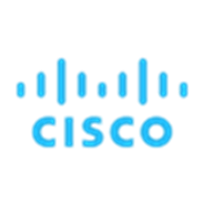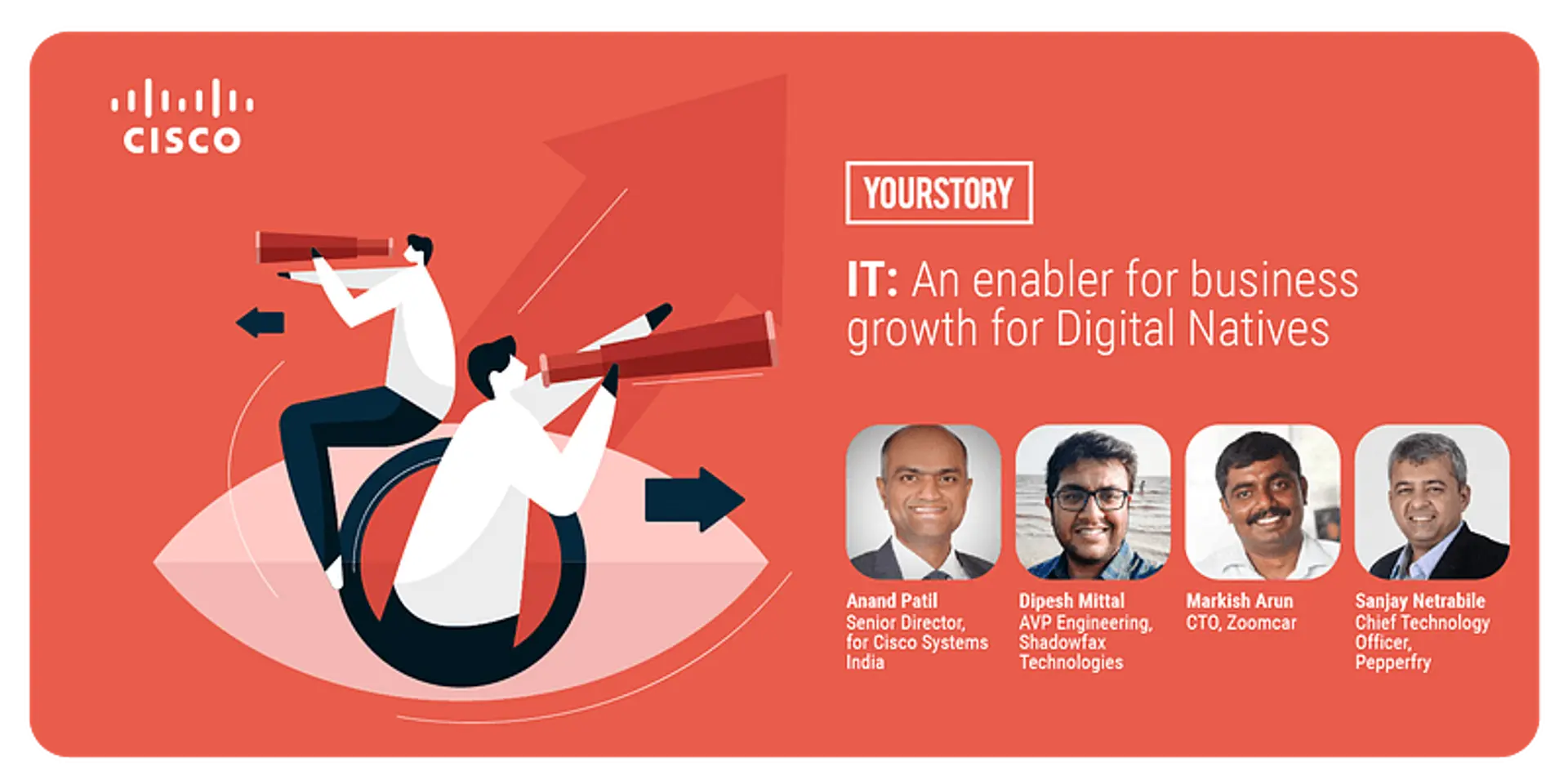
Cisco
View Brand PublisherAt Cisco Connect India, industry experts discuss tackling IT challenges for hybrid work, approaches to cloud adoption and more
The cloud-first route is no longer an option for organisations, rather the new mandate and key survival tool for an end-to-end digital transformation for businesses post COVID-19.
At the panel themed 'IT: An enabler for business growth for Digital Natives' at Cisco’s flagship event – Cisco Connect India on October 22, 2021 – industry experts discussed how they tackled some of the biggest IT challenges to ensure business continuity and their expectations as the future leans towards a hybrid work world.
The panel included Markish Arun, CTO, ; Dipesh Mittal, AVP Engineering, ; Sanjay Netrabile, CTO, and Anand Patil, Director - Systems Engineering, Cisco.
Ensuring business continuity amidst the pandemic
Pepperfry has been cloud-native from the start, and so, when the pandemic hit, they were prepared. In the last two years, they've been focusing on the AR/VR front. "For innovation, people had to gather physically. The biggest learning in the pandemic was how to make it work. We're helping people come together in groups to ideate rather than coming to the office as a whole." said Sanjay.
The startup is working towards making their studio furniture-less with just a VR device, so that users get a more immersive experience, one where selection to checkout seamlessly happens in the same environment.
At Zoomcar, the situation was different altogether. The mobility sector was significantly impacted and the team was not used to working from home. During this time, the company made a strong commitment to employees that there would be no layoffs. "The more we communicated with the team, the more they believed in turning the business around together," said Markish.
From an IT standpoint, they had to make a lot of changes, which Markish felt was a blessing in disguise. Mobility was their only line of business, but they were forced to explore new avenues, set up cloud telephony, onboard more EOMs and expand internationally.
On the contrary, the logistics sector was one that had a silver lining. The importance of delivery partners was finally being recognised. At Shadowfax Technologies, they went to great lengths to not only ensure that delivery partners were earning, but also take care of their health and safety.
They got their engineering team to create a product so that delivery passes were easily available to partners, set up temperature check centres in dense areas, use image recognition to ensure they were following mask protocols, and more. Dipesh said, "We also set up a fund to contribute to their monthly salary. Now that fund is kept aside as a contingency in case of unexpected situations in their lives."
How to proactively approach cloud adoption
The last 10 years have been defined as the decade of digital in India. Today, everything is software and cloud-driven, security has become paramount, and zero trust has gained significance. Customer interaction has also become contextual, where leaders are looking to gather deep insights and reach out to consumers, no matter the channel.
For a B2C company like Zoomcar, reducing costs was a major KPI when the pandemic hit, and they took the multi-cloud approach.
Markish said, "We've invested in IoT, right from keyless entry to onboard diagnostics system data. We're working with data centre providers in different countries for hybrid models. We've also invested in our fleet apps to manage new features like contactless delivery, sanitisation etc."
But what happens when the cloud goes down? How do companies manage resources, capacity, storage and security, while ensuring business continuity?
According to Dipesh, it's important to incorporate redundancy in how your application is deployed for your end customer. "At Shadowfax, we launch a new version of our algorithm every month. At the same time, we ensure we don't discard the older version - it's a backup to prevent single points of failures," he said.
Zoomcar has invested more in infra automation and autoscaling, which has helped reduce costs by 30 percent. During the pandemic, with 8,000 vehicles stranded on roads, they also had to build an app to locate the nearest service centre to maintain these assets.
Meanwhile, Cisco, widely known for its enterprise hardware solutions, has now forayed into the software space and is catering to organisations heavy on applications. Anand said, "Apps have become a critical part of the business strategy, if not the business itself. Cisco brings together network, security, analytics and management, and delivers a comprehensive portfolio of solutions and services to simplify how you connect, protect and consume the cloud."
Empowering the hybrid workforce of the future
Most companies now are creating a comfort bubble for employees with flexible work policies. According to Anand, the workplace of the future is now designed keeping in mind the workforce of the future.
Cisco was always built for the hybrid workplace. As per a survey they conducted, 77 percent of large organisations globally are looking to increase work flexibility and 58 percent of employees want to work outside the office for at least eight days a month.
While this creates an open environment, it poses challenges in terms of data security. Cisco provides comprehensive tools to enable zero trust, verify user identity, gain device visibility, ensure device trust and secure connectivity. "Cisco also provides an intelligent office design, where meeting rooms are equipped to blend both the physical and virtual experience," added Anand.
Talking about future trends, Zoomcar’s Markish said that the hub and spoke model will see a lot of traction, especially in remote places. He also added that for companies, the focus is now on customer stickiness. "It's about personalisation, gaining customer trust and making them use my product again," he said.
Dipesh expects to see a hybrid workspace manager who can inculcate daily routines into work schedules on certain days from home and other days in office, that would motivate employees to seamlessly make the shift to hybrid. He said, "Going forward, for businesses, health and safety will be of utmost priority for its customers, delivery partners and internal teams."







